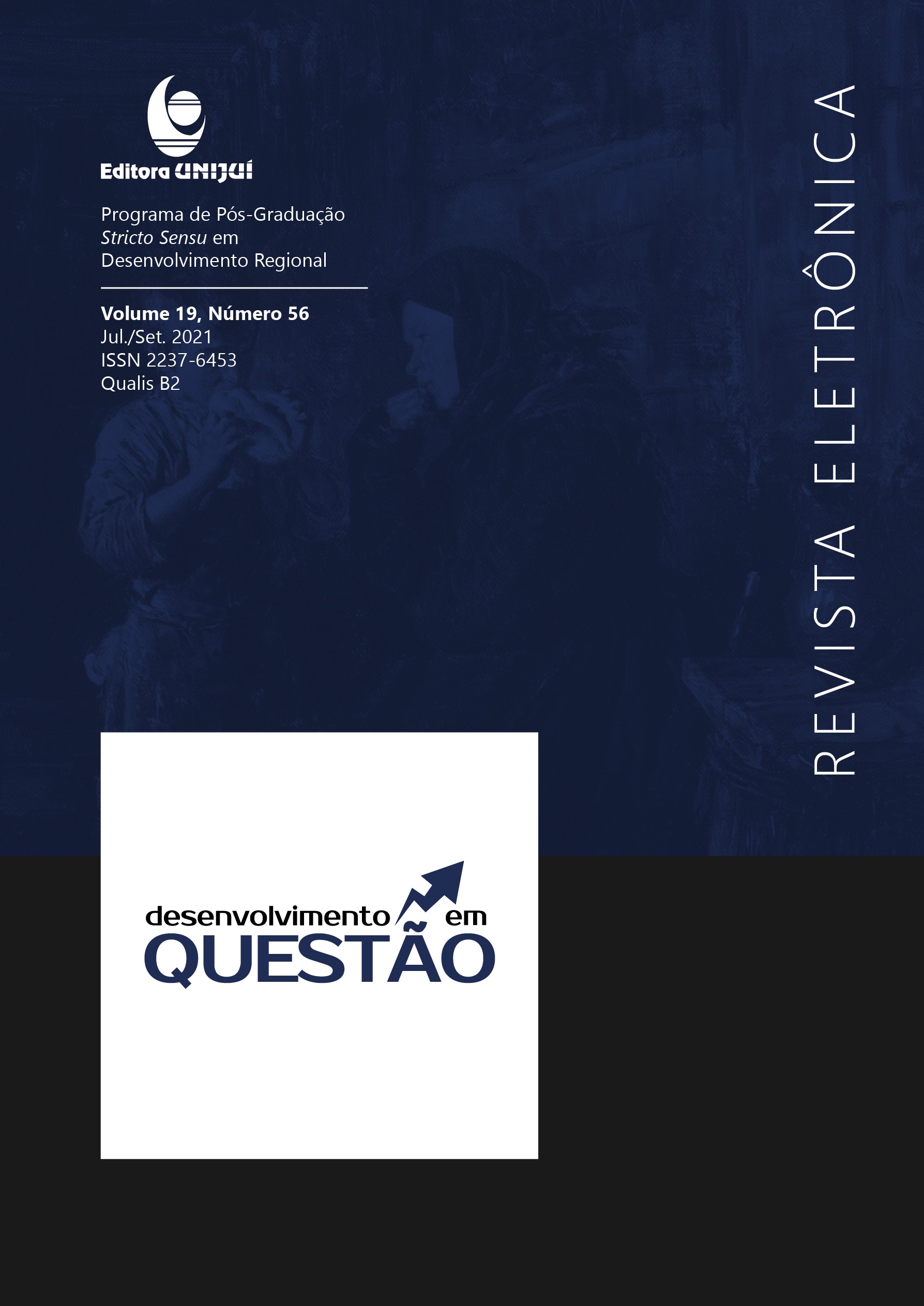Segregação e Atividade Industrial no Estado do Rio de Janeiro: Uma ênfase na microrregião do Vale do Paraíba Fluminense
SEGREGATION AND INDUSTRIAL ACTIVITY IN THE STATE OF RIO DE JANEIRO: AN EMPHASIS ON MICROREGION OF PARAÍBA FLUMINENSE VALLEY
DOI:
https://doi.org/10.21527/2237-6453.2021.56.10703Palavras-chave:
Correlação, Indústrias, Desigualdade, Rio de JaneiroResumo
As desigualdades e a diferença no acesso as oportunidades influenciam o processo de segregação das cidades. No estado do Rio de Janeiro, algumas regiões se destacam economicamente devido a diversos fatores. Este artigo tem como objetivo abordar a relação entre a atividade industrial no estado do Rio de Janeiro e as desigualdades, existentes no território, relacionadas com o processo de segregação, enfatizando a microrregião do Vale do Paraíba Fluminense. Para isso a metodologia emprega distintas escalas de análise. Inicialmente efetua uma análise do PIB predominante de 2002 e 2010; a seguir confecciona índices de segregação espacial empregando os dados do Censo de Demográfico de 2010; e, por fim, realiza a análise de correlação entre os índices de segregação espacial e a proporção de indústrias empregando os dados da RAIS de 2000 e 2010. Como resultado foi possível perceber em quais municípios a indústria gera mais riqueza no estado do Rio de Janeiro, assim como os municípios que são mais segregados. Também se observou que há indícios de correlação entre a quantidade de indústria no território e a segregação das pessoas mais ricas.
Downloads
Publicado
Como Citar
Edição
Seção
Licença
Ao publicar na Revista Desenvolvimento em Questão, os autores concordam com os seguintes termos:
Os trabalhos seguem a licença Creative Commons Atribuição 4.0 Internacional (CC BY 4.0), que permite:
Compartilhar — copiar e redistribuir o material em qualquer meio ou formato;
Adaptar — remixar, transformar e criar a partir do material para qualquer fim, inclusive comercial.
Essas permissões são irrevogáveis, desde que respeitados os seguintes termos:
Atribuição — Atribuição — os autores devem ser devidamente creditados, com link para a licença e indicação de eventuais alterações realizadas.
Sem restrições adicionais — não podem ser aplicadas condições legais ou tecnológicas que restrinjam o uso permitido pela licença.
Avisos:
A licença não se aplica a elementos em domínio público ou cobertos por exceções legais.
A licença não garante todos os direitos necessários para usos específicos (ex.: direitos de imagem, privacidade ou morais).
A revista não se responsabiliza pelas opiniões expressas nos artigos, que são de exclusiva responsabilidade dos autores. O Editor, com o apoio do Comitê Editorial, reserva-se o direito de sugerir ou solicitar modificações quando necessário.
Somente serão aceitos artigos científicos originais, com resultados de pesquisas de interesse que não tenham sido publicados nem submetidos simultaneamente a outro periódico com o mesmo objetivo.
A menção a marcas comerciais ou produtos específicos destina-se apenas à identificação, sem qualquer vínculo promocional por parte dos autores ou da revista.
Contrato de Licença (para artigos publicados a partir de 2025): Os autores mantêm os direitos autorais sobre seu artigo, e concedem a Revista Desenvolvimento em Questão o direito de primeira publicação.











